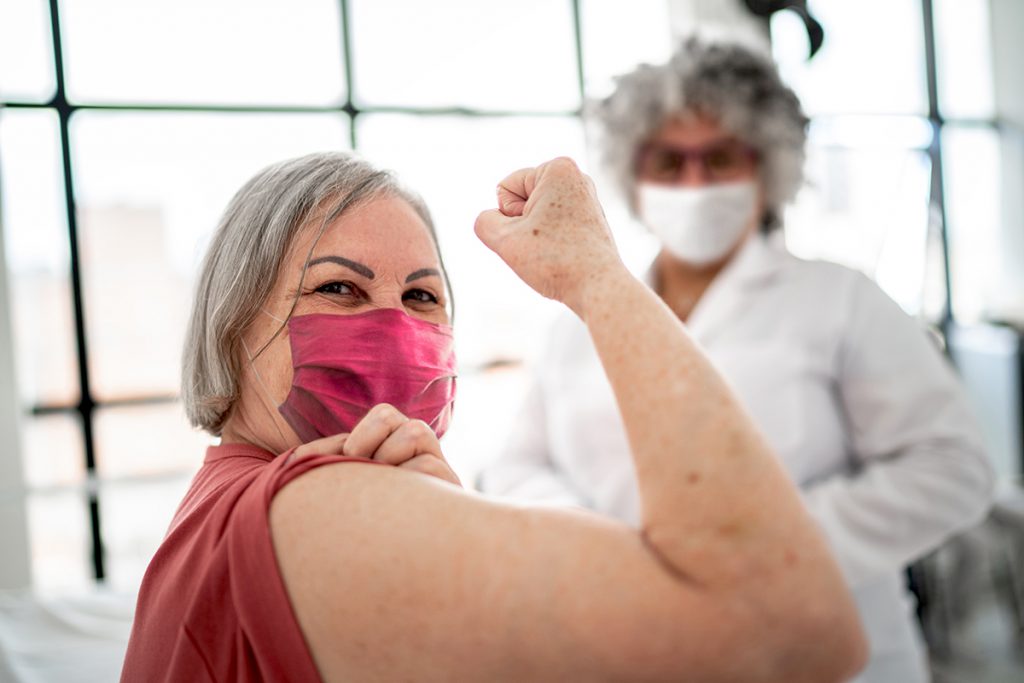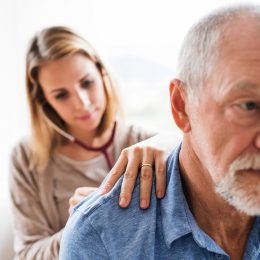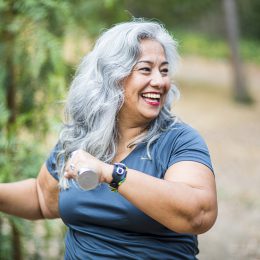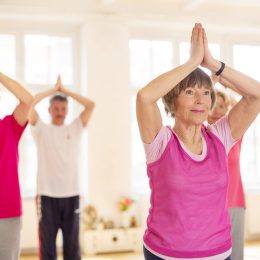Why You Need a COVID-19 Vaccine—and How to Get It
If you haven’t gotten your safe, effective, and free COVID-19 vaccine yet, now’s the best time. Here’s why, plus tips on how to make it happen.
 It’s easier than ever to get your COVID-19 vaccine. To find one near you, search vaccines.gov, text your zip code to 438829, or call 1-800-232-0233.
It’s easier than ever to get your COVID-19 vaccine. To find one near you, search vaccines.gov, text your zip code to 438829, or call 1-800-232-0233.
What’s better than a safe, effective, and free—yes, free, regardless of your health insurance or immigration status—COVID-19 vaccine? How about three of them? As of May 13, more than 70 percent of adults 65 years and older have been fully vaccinated against COVID-19, according to the Centers for Disease Control and Prevention (CDC).
That means many people now have valuable—and lifesaving—protection against this serious disease. It also means we’ve started on the long road back to “normal.”
Even better, though vaccination efforts in the country got off to a slow start, you now have more options to get your vaccine, and it’s absolutely worth every effort. Here’s why, plus tips on how to book an appointment.
Why Older Adults Need the COVID-19 Vaccine
In the past year, one of the most important things we’ve learned is that if you’re 65 years or older, you’re at higher risk for hospitalization and death from COVID-19. In fact, eight out of 10 people who die from COVID-19 are 65 or older, according to the CDC.
There are a few reasons for this. In general, aging can compromise your immune system, says Gary LeRoy, M.D., board chair of the American Academy of Family Physicians. Plus, older adults are more likely to have other health conditions, such as heart disease or diabetes, which can increase your risk of complications if you get COVID-19.
What’s more, hospitalization and death aren’t the only risks to consider. Some people who get COVID-19 may experience long-term symptoms, such as fatigue, brain fog, or aches. And while it’s important to maintain physical distance from other people to help prevent the spread of the illness, extended periods of isolation can lead to loneliness and poor mental health—especially for older adults.
All of this points to the same conclusion: Getting vaccinated may not only save your life from COVID-19. It can help protect your physical and mental health during this challenging time.
That’s why the CDC recommends older adults get a COVID-19 vaccine as soon as it is available to you.
Which COVID-19 Vaccine Should You Get?
The simplest answer: the first one that you can get.
Currently, there are three vaccines that the U.S. Food and Drug Administration (FDA) has found to be safe and effective against COVID-19. Because the goal is to get vaccines out to people as quickly as possible, you may not be able to choose which vaccine you get.
Any COVID-19 vaccine is far better than no shot at all, says Judith Beizer, Pharm.D., a clinical professor at St. John’s University College of Pharmacy and Health Sciences in New York. “The main goal is to prevent serious disease, hospitalization, and death. That’s what all these vaccines do,” she says.
Even if you do get sick with COVID-19, the vaccine still offers some level of protection against severe illness. “If you happen to be among the small group of people for whom the vaccine doesn’t work as well, your symptoms are still likely to be minor enough to avoid hospitalization,” says Timothy W. Farrell, M.D., an associate professor of geriatrics at the University of Utah School of Medicine.
When you receive your vaccine, it’s important to follow any instructions that you are given. For example, some vaccines may require two doses to fully protect you against COVID-19, so you’ll want to make sure to get both doses.
Here are key things to know about each vaccine:
- Pfizer: Requires two shots given 21 days apart
- Moderna: Requires two shots given 28 days apart
- Johnson & Johnson (J&J): Requires one shot
How to Get a COVID-19 Vaccine
The exact process of signing up for a COVID-19 vaccine may vary depending on where you live. That’s because many different organizations are helping in the vaccine distribution process. The federal government provides national guidelines, but each state has its own plan for vaccine distribution.
States also often work with other organizations, such as:
- Local health departments
- Hospitals and medical offices
- Participating pharmacies
However, each individual organization isn’t connected, so your local health department may not know whether there are available doses and appointments at your local pharmacy, and vice versa.
That’s why booking an appointment may require different strategies. Here are a few to try.
1. Start with Help from the CDC
To find a location near you, you can:
- Text your zip code to 438829
- Call 1-800-232-0233
- Search vaccines.gov
To search on vaccines.gov, enter your ZIP code and search area—say, within 10 miles. You’ll get a list of COVID-19 vaccine providers. For each, you’ll see the name, address, and phone number of the provider, and if available, a link to schedule an appointment.
2. Make an Appointment Through Your Local Pharmacy
Costco, CVS Pharmacy, Kroger, Publix, Rite Aid, Walgreens, Walmart, and many other pharmacies are on the CDC’s list of pharmacies that offer vaccines. Visit the specific pharmacy’s website to make an appointment.
Subscribe to our newsletter
It's quick and easy. You could be one of the 13 million people who are eligible.
Already a member? Click to discover our 15,000+ participating locations.
Follow Us
Many pharmacies may also offer walk-up appointments, meaning you don’t have to book in advance. If you’re picking up a prescription, ask about COVID-19 vaccine options.
3. Ask Your Doctor About the Vaccine
Some medical offices may be able to administer the shot. But even if your primary care doctor or specialist can’t given you the vaccine, they may be able to guide you.
If you have concerns about the COVID-19 vaccine, your doctor can also help answer your questions so you can protect your health.
4. Check with Your State or Local Health Department
Your state or local health department may have additional information, resources, and even special events to help you get vaccinated. Find your state health department here.
5. Keep Your Eyes on Local News
If it’s not easy for you to get to a pharmacy or medical clinic, don’t give up. Increasingly, you may find more vaccination events in community settings, such as a mobile vaccine clinic that travels to senior centers or a pop-up clinic in a church parking lot.
6. Enlist the Help of Family Members or Friends
Don’t be shy about asking someone you trust for help to find an appointment. This may be a child, grandchild, or close friend.
If you’re comfortable, share essential information with your trusted helper in advance, so they can fill out online forms on your behalf. This can include your:
- Name
- Address
- Date of birth
- Any health conditions
- Preferred appointment times
Most of all, remember it’s worth it to get your COVID-19 vaccine as soon as you can.
For the latest on COVID-19 vaccines, see information from the CDC.
Take Your Favorite SilverSneakers Classes Online!
SilverSneakers members can access live fitness classes and wellness workshops through SilverSneakers LIVE. See the latest schedule and RSVP for classes here.
Not a member? If you have a Medicare Plan, it may include SilverSneakers—at no additional cost. Check your eligibility instantly here.




